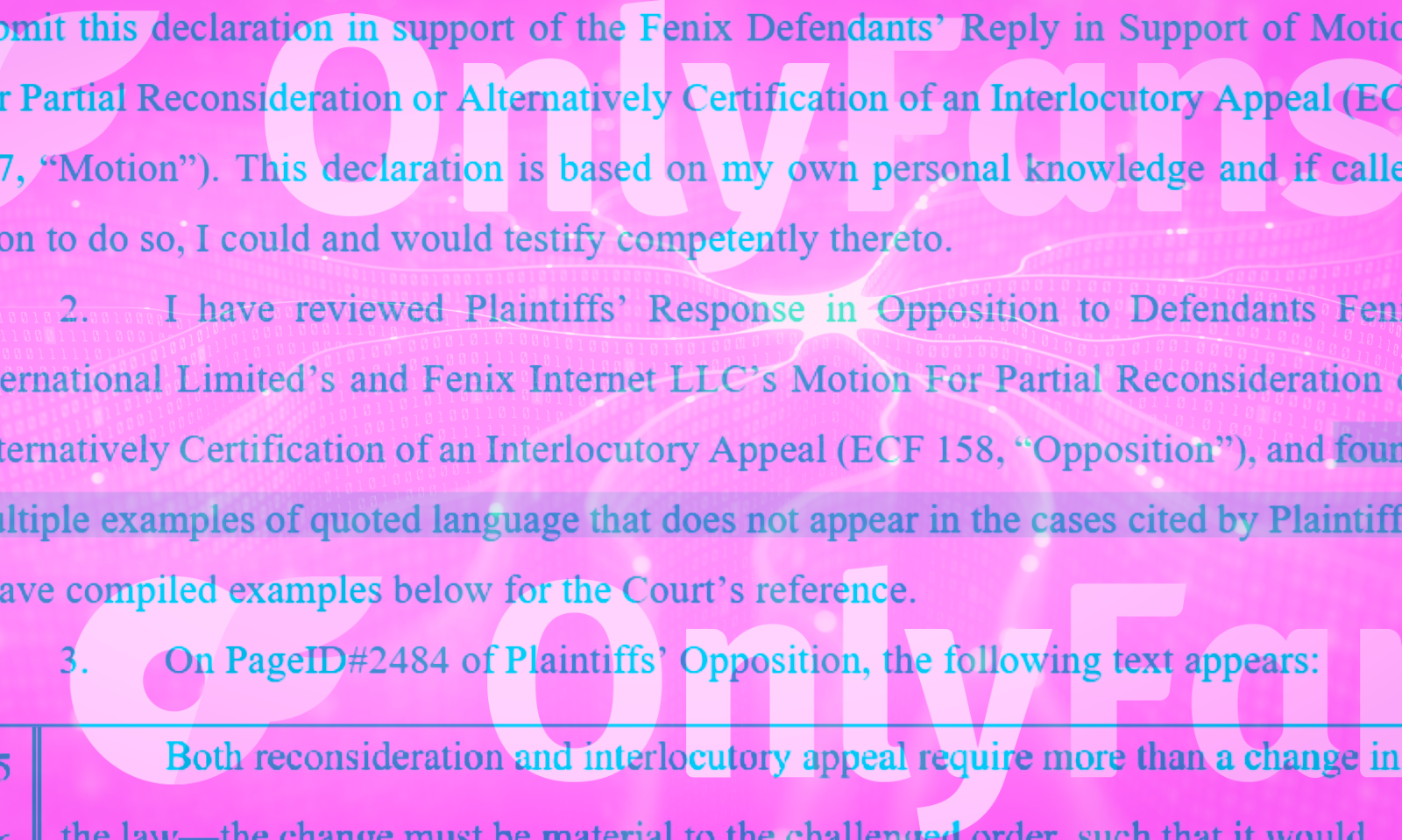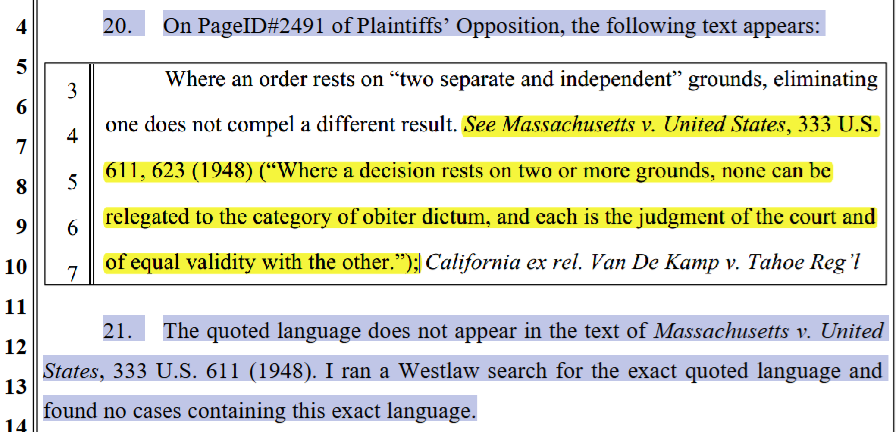
LOS ANGELES—Attorneys representing a class action targeting Fenix International Limited, the parent company of OnlyFans.com, and so-called "chatter" agencies disclosed on Thursday to a federal district court in Santa Ana, Calif. that they used artificial intelligence to help write a legal complaint outlining alleged RICO allegations.
Law360.com reported today that plaintiff attorneys led by Robert B. Carey, an Arizona-based partner at Hagens Berman Sobol Shapiro LLP utilized AI to draft the filing. As AVN reported previously on this case, the class action was filed in August 2024 with the U.S. District Court for the Central District of California, alleging RICO violations and fraud.
(RICO, which was created to fight organized crime rings, can be used in courts to file civil claims against potentially "corrupt" organizations.)
At issue for the plaintiffs is that users who interact with creators on OnlyFans believe that they are victims of fraud. The fraud claims derive from the fact that a cottage industry of so-called "chatter" agencies has propped up within the multi-billion-dollar ecosystem of the premium social network known for its porn content.
"The lawsuit is filed on behalf of hundreds of millions of OnlyFans users, or fans, who pay to communicate directly with preferred content creators on a personal, often intimate, level," reads a statement about the lawsuit published by the Hagens Berman law firm on its website.
"The suit alleges that fans are led to believe they are engaged in an authentic conversation when they are actually communicating with professional chatters hired to impersonate the creator and convince users to spend more money," that same statement adds. Despite these claims, hiring these "chatter" agencies is commonplace.
Since some of the world's most popular content creators use OnlyFans as a primary vehicle for content distribution and monetization, the influx of direct messages sent by fans to an individual creator with a large following is likely several thousand per day. OnlyFans sees 468.76 million monthly visits, per December 2024 data from Statista.
Failure to Review
Attorneys defending Fenix International responded, per standard procedure in a federal class action case.
However, they reported to the court as early as August 18 that several of the cases cited by the plaintiff attorneys in the initial complaint and opposition filings against the defendants' responses alleging the RICO and fraud claims were either incorrect or entirely false.
"I have reviewed Plaintiffs’ Response ... and found multiple examples of quoted language that does not appear in the cases cited by [the] plaintiffs," states a declaration made by attorney Or-el Vaknin, a litigation associate attached to the team representing Fenix in the case. Vaknin works for Skadden, Arps, Slate, Meagher & Flom LLP.
Vaknin shares several errors. In his declaration, he points out to the judge at least 15 instances where a citation was false or incorrect.
"I ran a Westlaw search for the exact quoted language and found no cases containing this exact language," Vaknin wrote in his declaration, referring to his search for a particular case in a legal database known as Westlaw. Westlaw is a legal research platform owned by Thomson Reuters.
He referred to the 1948 case of Massachusetts v. United States, which was cited to argue the supposed concept of "two separate and independent grounds."
That is just one example of an error prompted by liberal use of artificial intelligence in an official filing. In response to Vaknin's declaration, a notice filed by the plaintiffs confirmed to the court that artificial intelligence was used in an opposition filing against the defendants.
"To preview the issue for the Court, Hagens Berman’s co-counsel (who has not filed a notice of appearance in this case) was tasked with drafting portions of the briefing, as well as compiling, editing, and assisting with finalizing the briefing," attorney Carey wrote in the notice. The "co-counsel was dealing with the extended hospice care and the eventual death of a parent on August 14, 2025, which unbeknownst to undersigned counsel was taking up a significant amount of her time."
Carey continues, "To avoid missing the filing deadlines, she turned to [artificial intelligence] for help without informing Hagens Berman (Hagens Berman has a policy against the use of this type of AI and Hagens Berman is aware of the Court’s order on the issue). Because of her role in finalizing the briefs and her history of reliability, Hagens Berman’s review of her work was not thorough enough and failed to catch her use of AI. Hagens Berman takes full responsibility for those failures."
In the notice, Carey requested that the court grant leave to update the filings with correct citations by August 27.
Carey's 'Save the Fans' Campaign
Carey and his legal team started soliciting plaintiffs for a class action as early as November 2023, AVN reported.
Dubbed "Save the Fans," attorney Carey claimed at the time to be "investigating the OnlyFans industry and has found widespread questionable practices that could put you at risk of extortion, blackmail, or humiliation."
Carey is a partner and executive committee member at the plaintiffs' law firm, Hagens Berman Sobol Shapiro LLP.
"Have you ever talked to an OnlyFans model? She's NOT talking to you," reads the website advertising the action.
"It's a team of paid chatters she works with to defraud you. ... We are working to get justice for all subscribers who have been lied to and defrauded."
There is no indication that paid chat teams are working to defraud consumers, as it is commonplace in the content creator sector of the adult entertainment industry. It is also a growing common practice for OnlyFans account management agencies in this segment.
Carey was also prominently featured in an investigative series by Reuters that was published throughout 2024, alleging OnlyFans' supposed misconduct.











